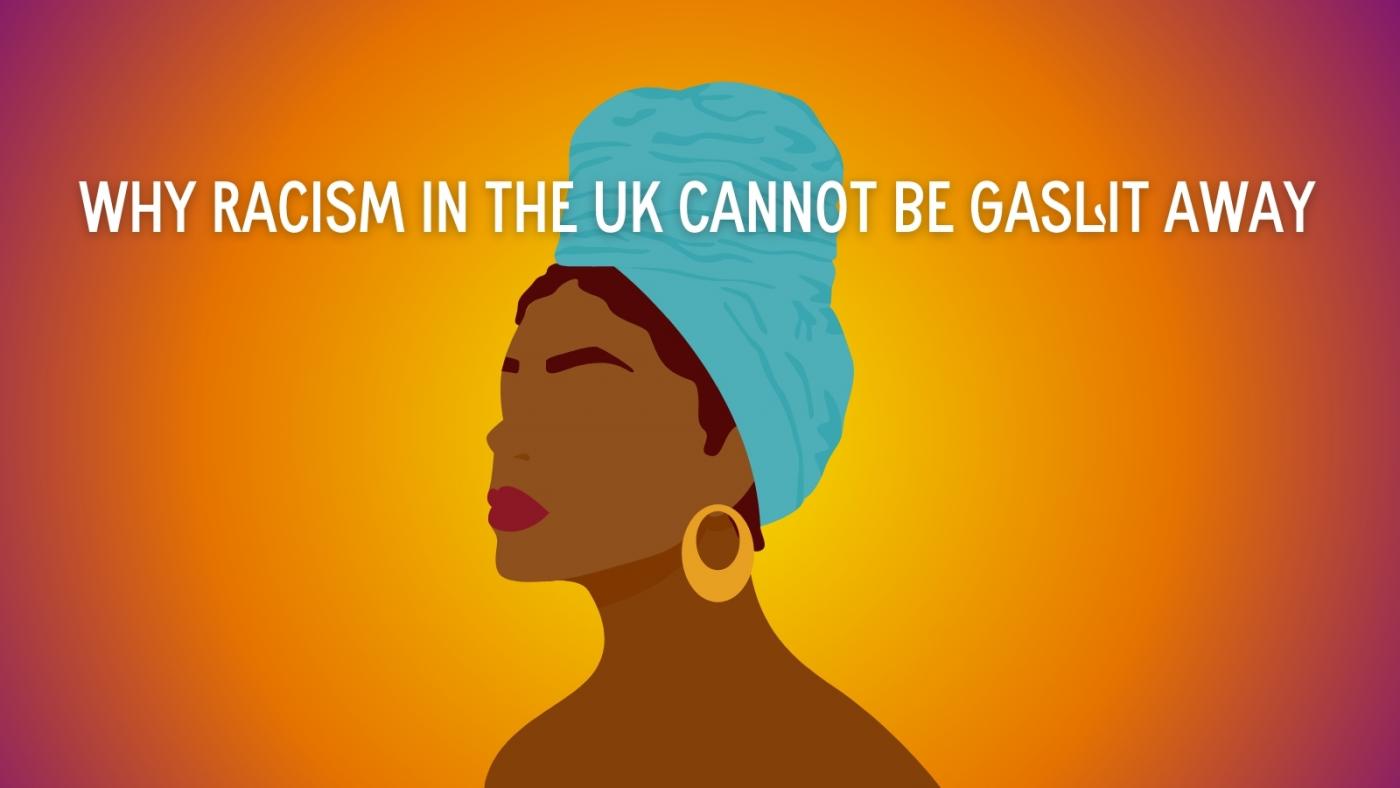Why Racism in the UK Cannot be Gaslit Away

The long-awaited report from Downing Street on race and ethnic disparities concluded that ‘claims of institutional racism not borne out’. Whilst we feel shocked and are deeply disturbed by this conclusion, we’re also not entirely surprised by these initial findings.
Let’s start by looking at the report itself
The head of the government-appointed race commission, Dr Tony Sewell, has previously suggested that the evidence for “institutional racism” is “somewhat flimsy”. When Munira Mirza was selected to set up and run the race inequality commission, there was much dismay from experts and equalities groups. Amongst other issues, it was widely reported that “One of the things she regards as nonsense – judging by her output as a commentator over the years – is the claim that the challenges faced by Black and minority ethnic people in the UK result from structural racism.”
In our consideration of this report and its merits (or lack thereof), it’s extremely important to remember that it was in fact led by people who question the very existence of the inequalities the report was commissioned to explore.
There is little doubt that the report was led by someone with pre-existing views and biases (the very ones that many racialised people and communities experience and suffer from) and speaks to a political agenda. Whilst the report acknowledges that overt racism remains a problem, it denies any findings of institutional racism.
Against the backdrop of rising Islamophobia, rising hate crimes against the East and South East Asian (ESEA) community, and stark inequality faced by Black people in Britain, it is undeniable that overt racism remains one of our most pressing problems.
However, to deny institutional racism is to detract from the very root of the problem. Institutions and systems are made up of people. People who make a series of decisions, take actions, design processes and display behaviours.
It is deeply irresponsible to deny the role that individuals have in forming the very institutions and systems that perpetuate racism.
Why is this a problem?
In order to create a better and fairer society, in which opportunity and equality are a reality for all, we must tackle systemic and institutional racism head on.
We want to see a country in which leaders take responsibility for our most pressing problems, and society moves to tackle them. Not one in which we deny the lived experiences and evidence presented.
Denying the existence of institutional racism, when there is so much data and research that clearly indicates otherwise, hinders progress. It worsens inequality and further detracts from the real work that needs to be done
There needs to be more accountability, more representation, more ownership and a reckoning with Britain’s deeply fractured relationship both to race and it’s colonial history.
Let’s look at the facts
Ethnic minority (racialised) groups account for 13% of the UK population. Yet across healthcare, criminal justice, education and employment, they are disproportionately and negatively affected by racism.
Here’s what the existing data and evidence tells us about the experiences racialised people and communities in England and Wales:
- Health care
- 60% of Covid-19 related health worker deaths were people from racialised backgrounds
- 34% of COVID-19-related admissions to intensive care were for people from ethnic minorities
- Black mothers are more than five times more likely to die during childbirth
- For mixed ethnicity women, the risk is threefold, and for Asian women, it’s double
- To read more on this check out our previous article on inequalities experienced by Black people in mental health care.
- Criminal Justice
- Black people make up 12% of the prison population (despite only making up 3% of the UK population)
- You are 240% more likely to receive a prison sentence for drug offences if you are a Black, Asian or Minority Ethnic defendant
- Black people are at least six times more likely to be stopped and searched by the police
- If you are Asian, you are around twice as likely to be stopped and searched as a white person.
- Education
- 60,000 + racist incidents have been reported in the past five years in UK schools
- 70% of Black British children feel under pressure over afro hair, 95% hear racist language and 50% think racism is the biggest barrier to success (YMCA poll finds)
- Exclusion rates are five times higher for black Caribbean pupils in parts of England
- 25% of ethnic minority students had experienced racism in higher education
- UK universities found to perpetuate institutional racism according to the report Tackling Racial Harassment in Higher Education.
What can you do?
You can respond to this report by:
- Sending an email to your MP demanding highlighting your experiences and concerns
- Reaching out to businesses and organisations you work with to ask them for their support and ensure this does not hinder any progress happening in their diversity and inclusion efforts
- Reading the below reports instead
- Sharing this article with those who want more information
Reports you should read instead
- The Runnymede Trust Colour of Money Report showed shocking levels of economic and racial inequality in Britain
- The Race Disparity Audit (showing inequalities between ethnicities in: education attainment, health, employment, and treatment by police and the courts)
- The Lammy Review (which found evidence of bias and discrimination from ethnic minority backgrounds in the justice system in England and Wales)
- McGregor-Smith Review (a study of race in the workplace, which found that people from Bblack and minority ethnic backgrounds were disadvantaged at work and faced lower employment rates than their white counterparts)
- 2019 report published by MBRRACE-UK - Mothers and Babies: Reducing Risk through Audits and Confidential Enquiries across the UK
- Spark and Co.'s report on why we ditched the term "BAME"
This piece was written by Spark and Co.'s Founder and Director, Ishita Ranjan (She/Her). Find out more about Ishita here.
